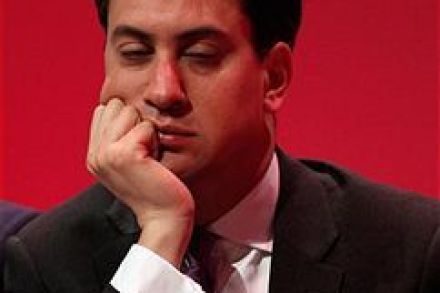Miliband goes Cameron-lite
Well, it turns out that ‘Red Ed’ is really a social conservative. As both Pete and James say, his speech contained notable sallies into Cameroon territory – community and family. He didn’t follow Cameron’s trail to the metre, but fell into many of the same ditches. Two things struck me: 1). Ever the opportunist, Miliband sees that there is the kernel of a good idea at the root of the ‘Big Society’ and tried to exploit Cameron’s inability to present it. Miliband’s gave us the ‘Good Society’, a clear though sanctimonious slogan for community renewal. However, he, like Cameron, can’t define what he means by community. He talked about post
















